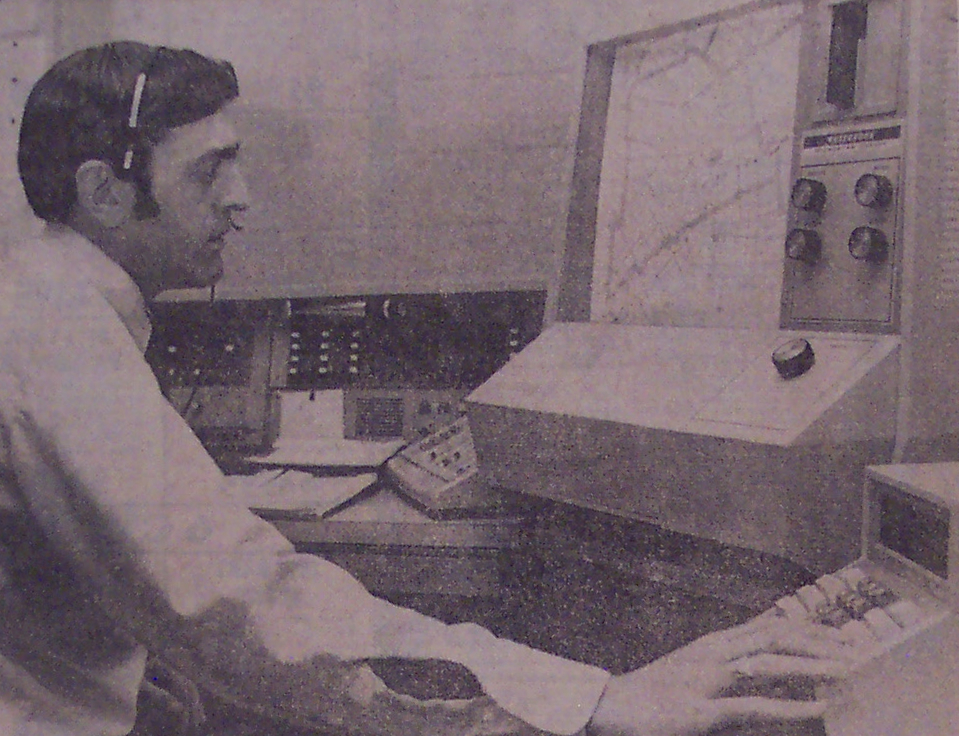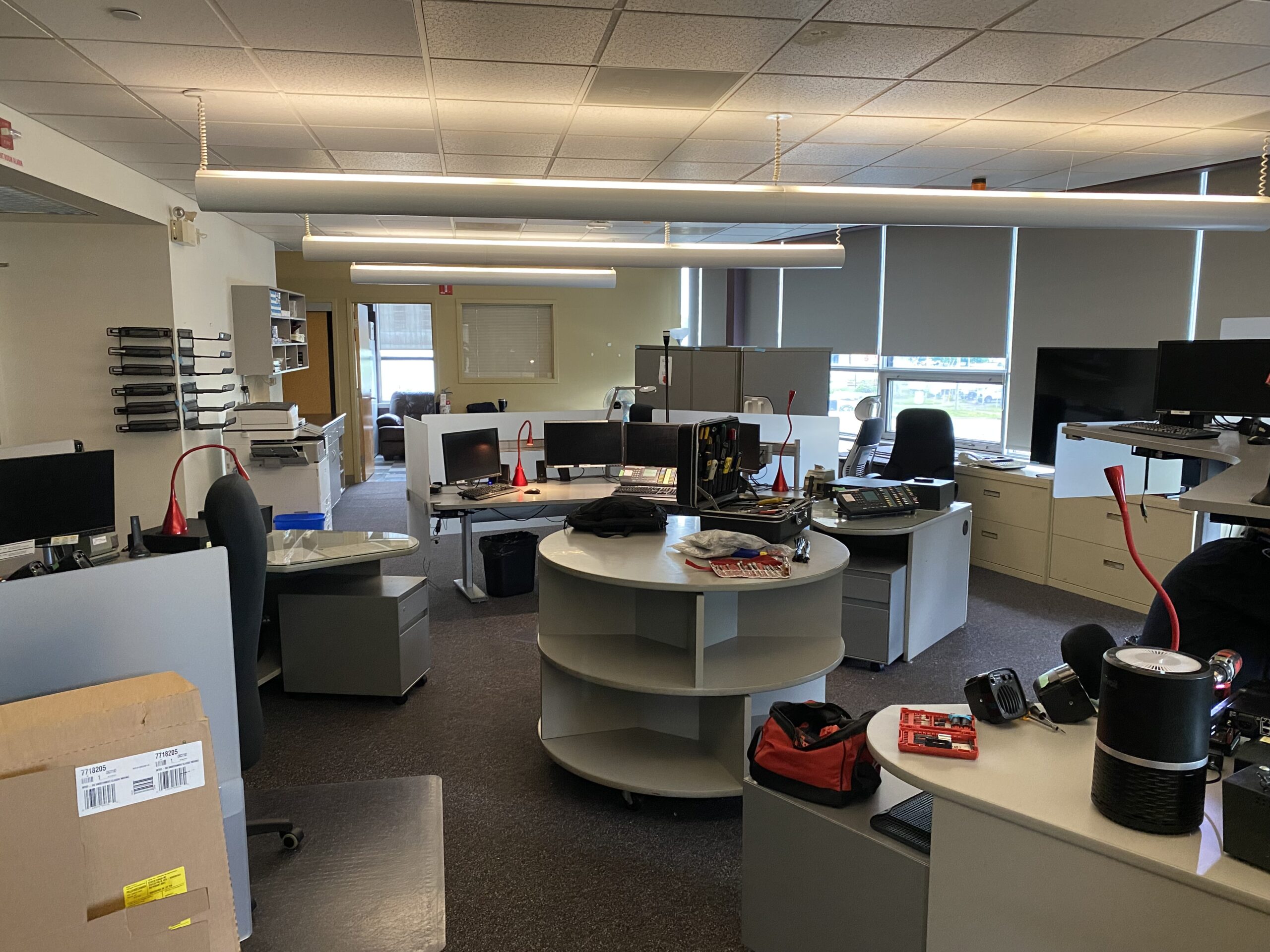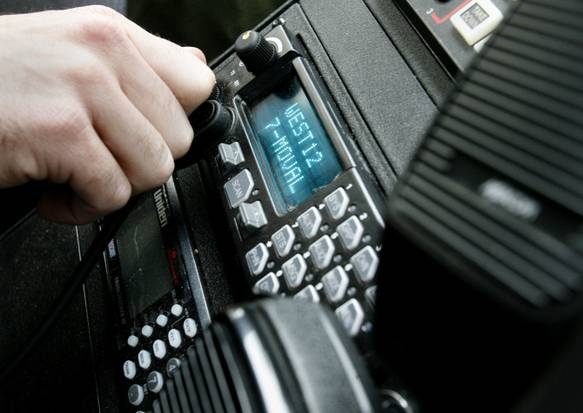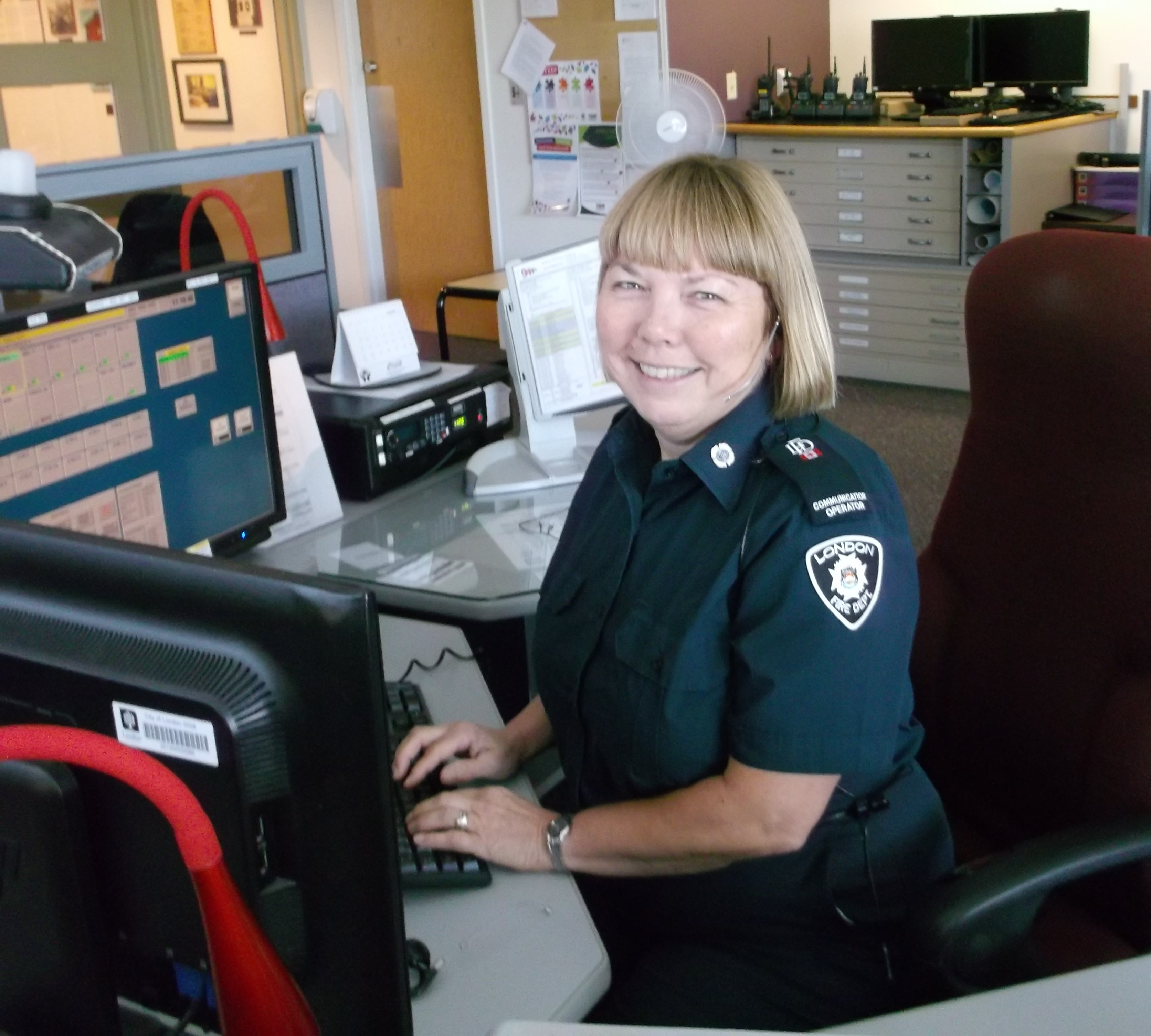
Peter Harding, assistant communications officer with the London fire department, demonstrates how area maps are called up by computer as soon as a fire call is received from the county. All county firehalls will be integrated with the $180,000 London communications system by the end of the year. Gord Wainman – The London Free Press
By the end of the year, all 18 firehalls in Middlesex County will be linked into the new, computerized, $180,000 radio communications system of the London fire department.
For the first time, all rural firehalls, now on independent radio systems, will be able to communicate with each other and with London.
Each municipality will pay about $500 a year for maintenance of the system.
Once all firehalls are linked by radio, the potential for an even better system is “exciting,” says Captain Owen Wills, chief communications officer of the London fire department.
Preliminary studies have been undertaken on the feasibility of a single emergency telephone number for all county residents. All fire calls would be answered in the London communications room under this system and alarms would be set off in appropriate county firehalls.
A further step toward full integration of the communications system would be the purchase by individual municipalities of a pocket pager for each of their firefighters.
Before these pagers were available, rural firemen had to all report first to the firehall, then be dispatched.
Firetruck drivers will still have to go to the firehall, then drive the firefighting equipment to the scene.
The integrated radio system has evolved over several years through the long-established Middlesex County Mutual Aid Association, which began in 1954 with Caradoc, West Nissouri, London and Lobo townships and the village of Lambeth.
The volunteer fire departments in the county are generally keen on the new system, says Capt. Wills, but there is concern they will lose autonomy in such a system.
Because of a distrust of the word “region” by some county residents, the new system is called the Middlesex County Fire Aid Radio System – although it is in fact a regional system including London.
Don Nisbett, reeve of Wardsville and a consistent critic of regional government, not only helped form the new system, but handled the financing for county council.
“I know when the word ‘region’ is mentioned in the county, a lot of hackles go up,” he says. “But this is strictly a communication system, not anything else . . .
“The London fire chief isn’t going to be the chief of Glencoe . . . He’s just one of the boys in the system,” says Reeve Nisbett.
“We’ve been dreaming about this at the county for a long time,” he says. “The first time we did anything concrete was when the county put $15,000 last year in its budget in anticipation of the system.”
Capt. Wills echoed Reeve Nisbett’s assessment of autonomy being maintained for member fire brigades.
“We’re not dictating anything,” he says.
Other advantages of the system include all fire calls being monitored and taped. Taping already has been used in the county to track down prank callers through voice identification.
The computerized system in London makes for instantaneous location of a fire in the county. Once a call is received and the caller gives the township, concession, lot number and type of fire, the computer is activated.
From its bank, an area map is flashed on a screen. The type of building and the nearest backup services such as police and ambulance are indentified.
The system also gives individual departments autonomy in calling for assistance from nearby fire brigades. They can purchase a quick-call system which activates the siren at neighboring firehalls.
Joining Mt. Brydges, Melbourne, Coldstream, Lambeth, Thorndale and London in the mutual aid system, are firehalls in Dorchester, Delaware, Arva, Ilderton, Ailsa Craig, Lucan, Parkhill, Granton, Kerwood, Glencoe, Newbury, Wardsville and Strathroy.





